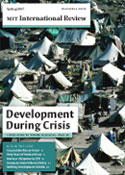Table 1.
The four characteristics clasically ascribed to private property.
- Excludability: This attribute implies that the owner of a certain property may bar others from trespassing on it at his or her discretion. It is also one of the primary attributes of private goods in general in economic theory, which holds that a good is excludable if one can prevent another from benefiting from it. In economists’ jargon, the test is one of limiting spillover effects.
- Use Privilege: This attribute stresses that one should receive the benefits (and costs) generated by one’s own property. In economic theory, this attribute is echoed by the idea of “rivalness,” meaning that the enjoyment of a certain good’s benefits effectively limits the benefit that others may derive from it. For example, if one person harvests corn from a particular parcel of land, another person may no longer find any corn left to harvest for him/herself. The enjoyment of non-rival goods, by contrast, does not limit others’ enjoyment. Non-rival goods are usually either plentiful (for example, the air that we breathe) or non-material (for example, a view of the mountains).
- Controllability: This attribute confers upon the owner the right to control, manipulate, improve upon, or otherwise invest in his or her property. It allows the owner to participate effectively in the free market by weighing the imagined costs and benefits of various options and choosing the one that seems best.
- Transferability: This attribute implies that the owner of property may sell, lease, or otherwise transfer some or all of the bundle of rights associated with it.




